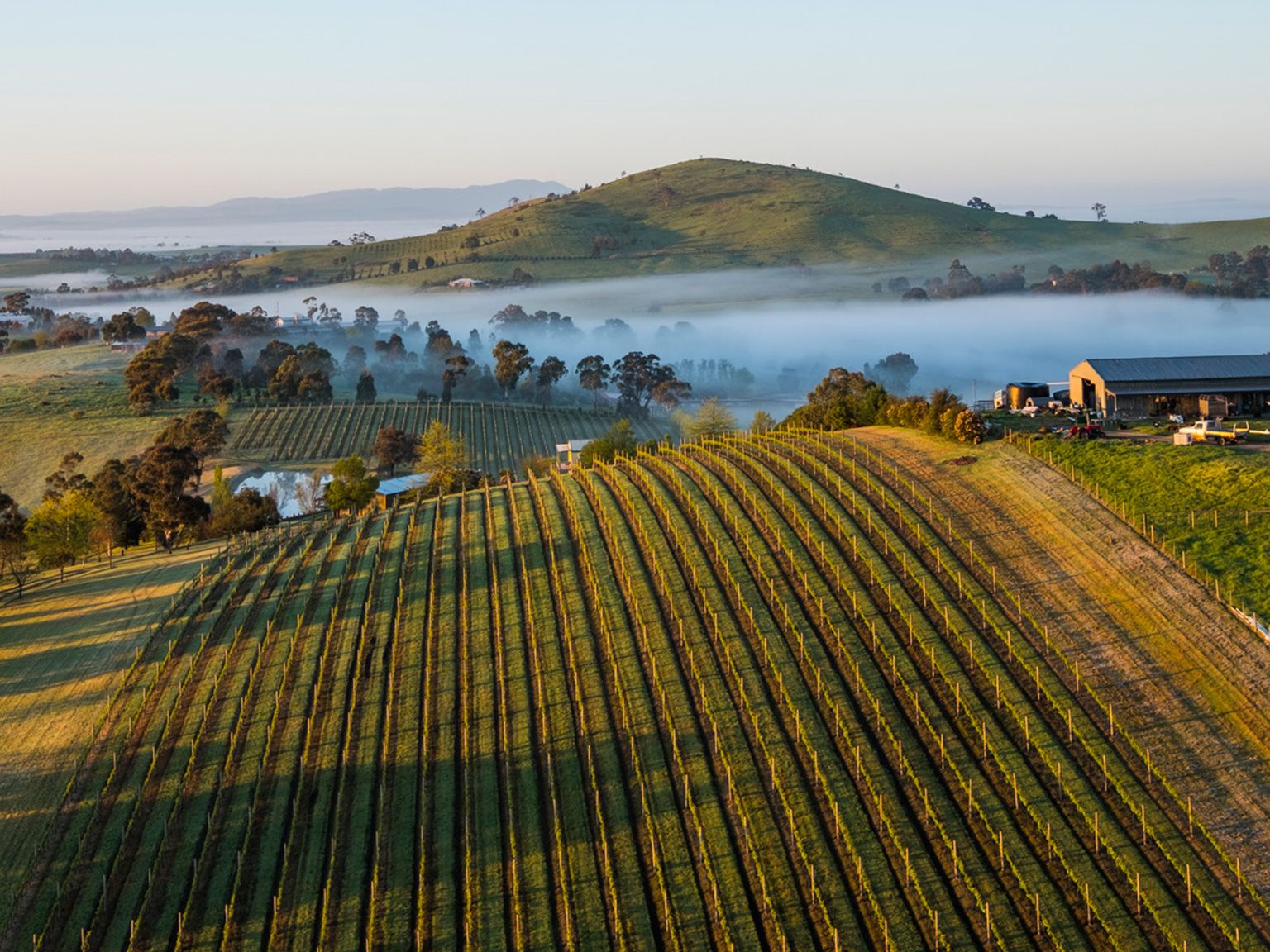Not long after returning from a visit to Victoria in August, I fell into conversation with a young chef, who, on discovering what my expertise was, exclaimed: “I’d love to learn about wine. What should I do? I buy wines regularly from the supermarket and drink them with my mates in order to learn about wines I’m not familiar with.”
I assured him that he was absolutely doing the right thing. When I told him that I had just returned from Melbourne, I was nearly floored by his next comment: “Australia? They make wine, don’t they? Haven’t really tried any Australian wines.”
Can it be possible that Gen Z wine enthusiasts showing their first interest in wine are completely unaware of what an emphatic impact Australian wine has had on our drinking culture? God, I’m getting old.
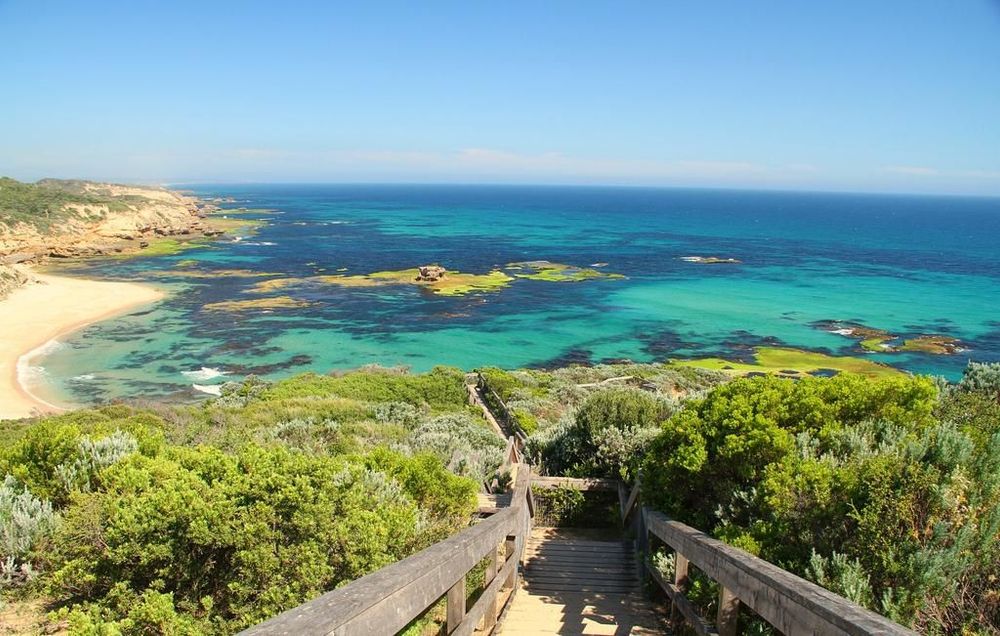
Victoria is home to a myriad of wine styles and regions all influenced by their proximity to the sea
Between the time of my birth in the early 1970s and the advent of available Australian wine in the early 1990s, average per capita wine consumption rose from a few bottles of wine a year to just over one bottle of wine per month.
Then the cult of Australian wine arrived. A combination of advertising replacing old French Châteaux with relatable English-speaking Australian winemakers, sports heroes openly drinking wine, and the birth of the “cool”, unstuffy wine shops, like Bottoms Up and Oddbins, meant that in my formative drinking years, people would ONLY drink Australian wine.
Enthusiasts coming into the wine game now all see wine as a common and regular social drink, but as recently as 1990, it was drunk regularly in fewer than 20% of households.
After a decline in market share over many years, due to the arrival of wines from Latin America and South Africa and huge consumption of Australian wine in China, Australian wine consumption reached new heights during the Covid pandemic, with Australian wine consumption almost reaching a bottle of wine per head every week. It’s back, baby!
My first love
Over the years, I have regularly found myself being drawn to Victoria in Australia, partly due to random circumstance and a lot to do with Australian wine being my first love.
All my early knowledge of wine stemmed from here. My parents ran a gastropub in the New Forest that had an internationally famous wine list largely due to my mother’s love for the exciting, authentic, full-throttle wines of Australian wine.
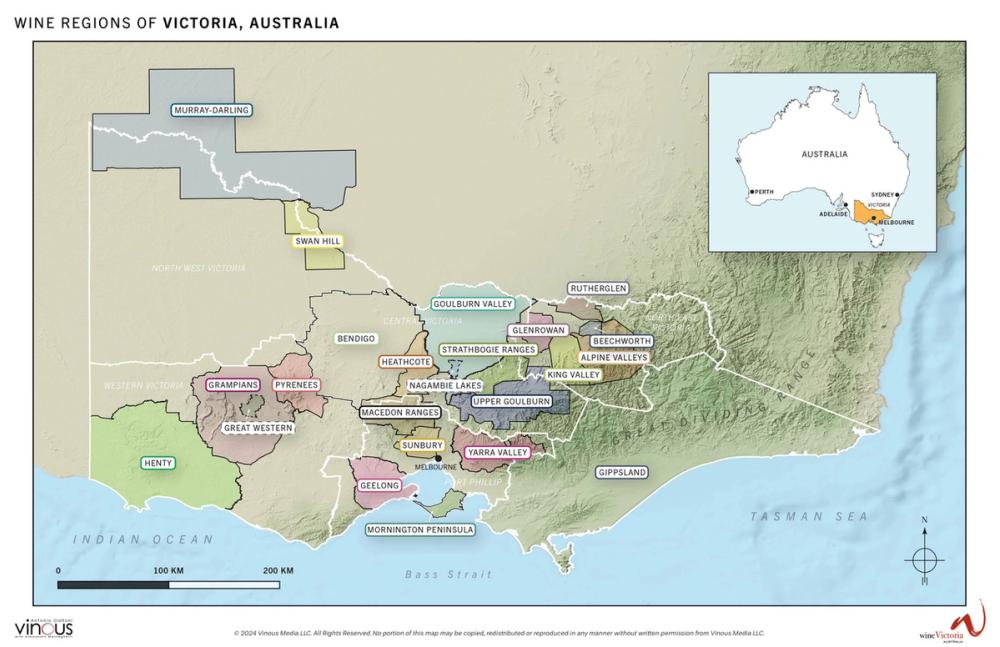
Victoria is home to many of Australia's most well-known and loved sub-regions
She was particularly fascinated with the wines of Victoria even back then… the combination of magical ancient wine soils, an endless variety of wine styles, and many separate climates in one state. Despite being the smallest mainland state of Australia, Victoria harbours almost 900 independent wine growers and well over 600 individual, visitable cellar doors.
When my parents and I visited Victoria for the first time on the “Wine Flight of a Lifetime”, there were far fewer wines to choose from. But even then, the breadth of styles being made across the state was astonishing and the sense of excitement coming from all those concerned was palpable.
21 divided by three
A wise marketeer once said that to market diversity is virtually impossible. Where do you start? Which messages matter most, and in what order? Yet, here we have a winemaking region that can produce everything from fortified dessert wine to Champagne-grade sparkling wines, from delicate, crisp, perfumed, Sauvignon Blanc to giant but balanced Durifs and Shiraz.
Over three articles, I have been tasked to summarise what each of Victoria’s 21 wine sub-regions brings to the party, and to make an educated guess where the great state of Victoria is going over the coming years.
Let’s start at the left and work our way across the map towards Melbourne…
Western Victoria
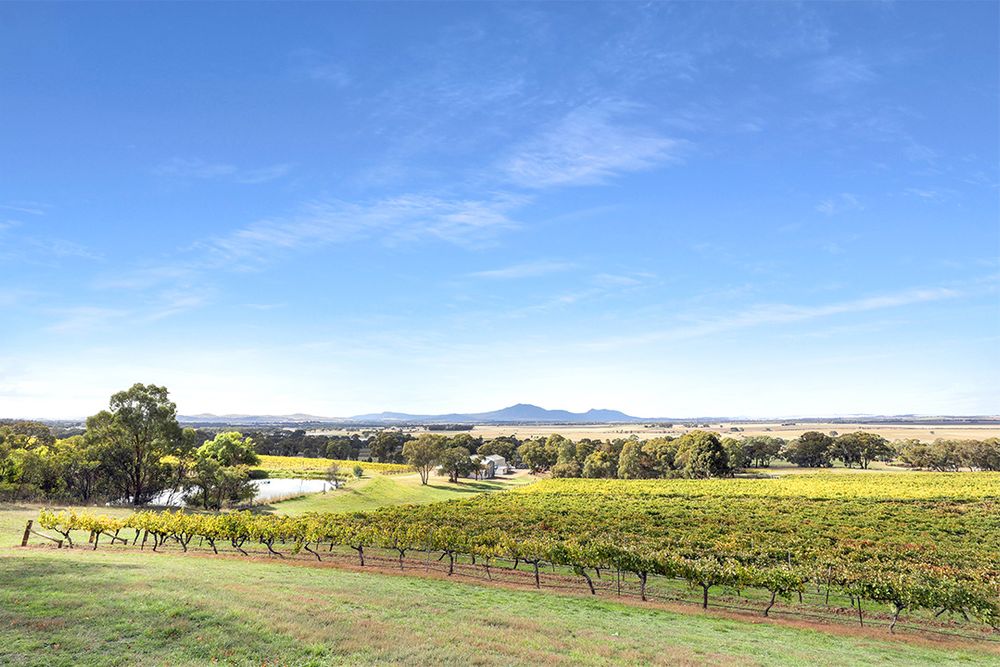
The whole Western part of Victoria starting with Henty in the far west, near the border with South Australia and the remote town of Mount Gambier stretches across Western Victoria in a series of sub-regions finishing in the district of Bendigo.
Western Victoria is a huge tract of land, and the city of Bendigo pretty much sits in the geographical dead centre of Victoria. All these sub regions share some special attributes, especially when it comes to wine growing, and some of Australia’s best known and characterful wines, mostly Shiraz, originate from here.
They have ancient soils that are largely infertile, but with a high and complex concentration of minerals, meaning that, to a greater or lesser extent, the soils of the region aren’t at all suitable for agriculture, like the Murray delta farther north. Therefore, vineyards planted here have naturally low vigour and low yields, coupled with fantastic minerality, acidity and age-potential.
Henty
Henty, the most westerly wine sub-region is not intensively wine farmed, rather it has pockets of interesting vineyard and sub-soils, most notably famous for producing some of Australia’s finest and most cult Rieslings, such as Seppelt’s Drumborg and Crawford River Riesling.
The Grampians
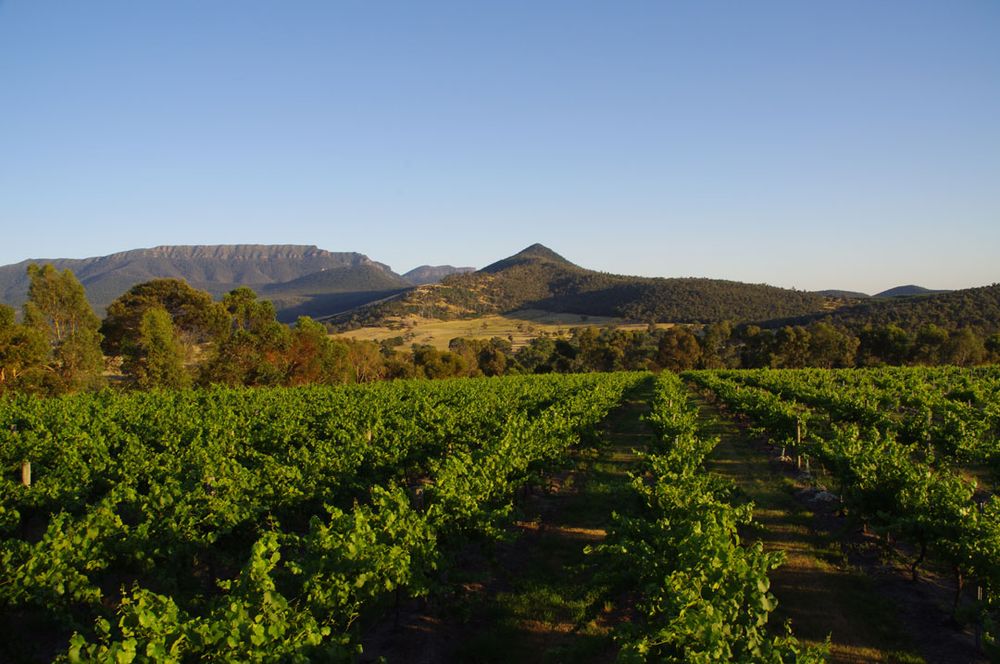
Next in line to the east is the Grampians, a region full of ancient loams and granite soils, some at remarkably high altitude, allowing vineyards, particularly those on the east facing slopes to provide harbour for some of Australia’s finest Shiraz. Excellent drainage, early-morning warmth and refreshing cold temperatures at night produce beautifully crimson red wines with great character and amazing acidity.
Seppelts and Best’s have been growing grapes in this region for over a 100 years, but it is perhaps the Rhône-kissed, silky peppery Syrahs that the late great Trevor Mast made at the Rathbone family’s Mount Langi Ghiran that put the entire region on the global wine map.
One of Australia’s most sought-after reds, the current release of their top cuvée “Langi” is arguably the best ever.
The Pyrenees
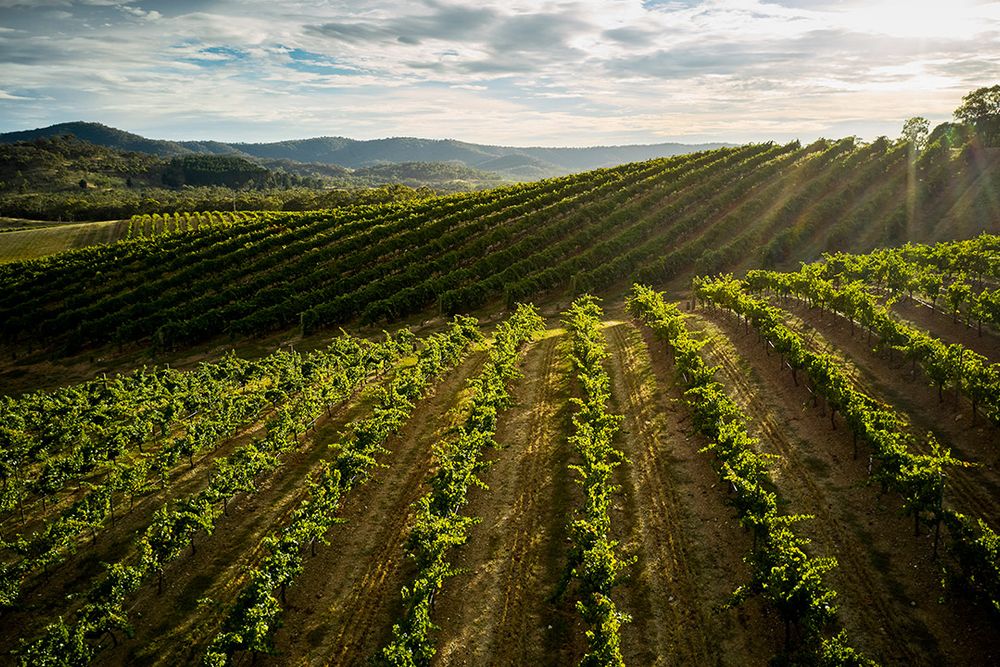
Next to the east is the Pyrenees, an ancient patchwork of wine-friendly soils, which have been occupied by some of Victoria’s biggest visionaries, including Dominic Portet at Taltarni, David K Jones at Dalwhinnie, and Andrew Koerner at Blue Pyrenees Estate, all of whom have now moved on.
Unique topography allows for many sites to have fantastic sun exposure when it counts, but enough altitude as to be free of any frost concerns, producing wines that are both silky, but embued with tremendous power and intensity.
Domaine Terlato and Chapoutier are currently producing astonishing wines not only in Heathcote but have access to remarkable ancient sites in the Pyrenees flecked with quartz, producing one of the most astonishing Chardonnays I’ve tasted in a while in their Landsborough Vineyard. Quite Chassagne-Montrachet in its crystalline, saline structure. Delicious.
Equally so is a gloriously silky, plush Shiraz, full of Rhône-like minerality, pink peppercorns, lavender and squashed morello cherries in a wine called A3 Block Shay’s Flat Vineyard. These were two of the most evocative and poetic wines of my recent trip and warrant much more investigation.
Bendigo
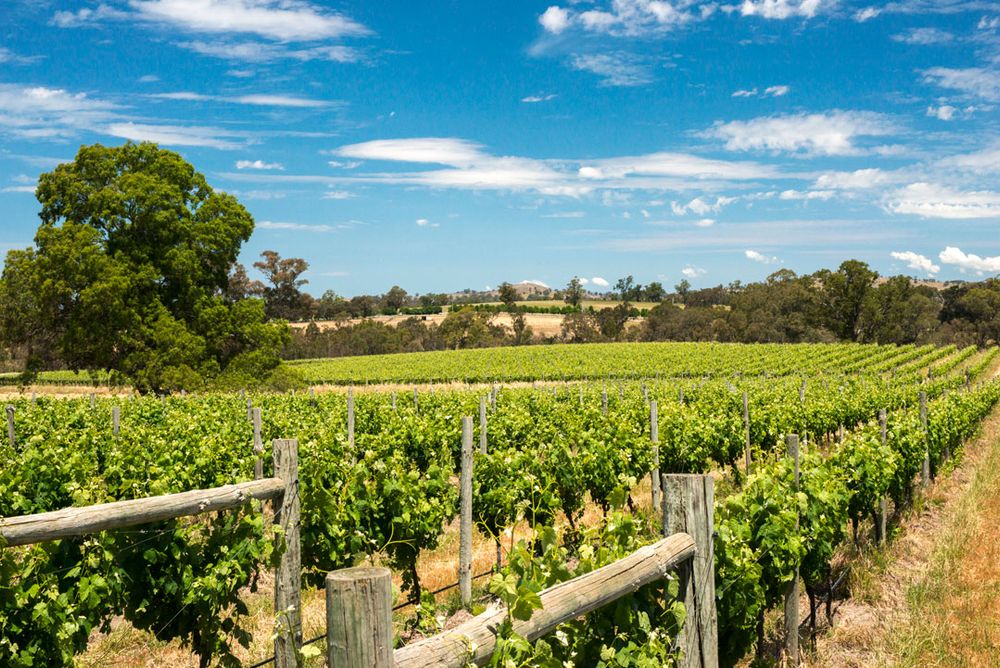
We now arrive at the large Bendigo zone, Australia’s fourth largest interior city, with over 100,000 inhabitants. You can see the success that gold-mining has had in the past. Bendigo even has its own bank. The vineyard topography is less interesting in Bendigo with a few vineyards in the highlands, but most spilling out onto the flatter western areas.
Compared to the qualitative success of other parts of western Victoria, Bendigo really only has a moderately extensive wine community because there was already gold here and viticulture was about keeping up local European traditions for most of the families involved. Having said that, there are still some very decent, full-flavoured reds made in the areas, most notably Balgownie Estate.
Heathcote
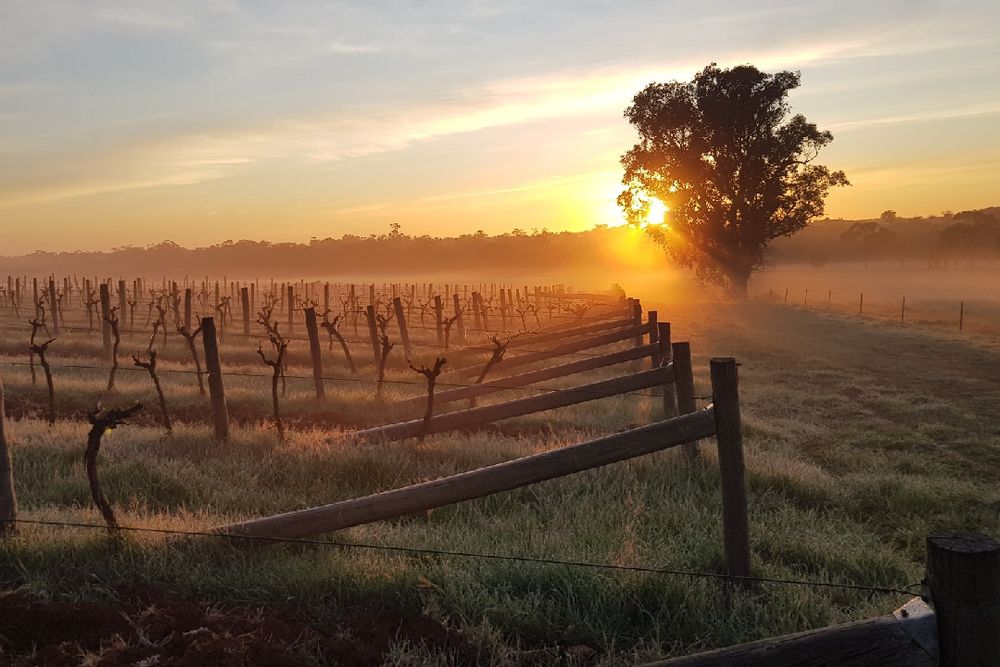
Following the line of wine zones across the state, we now find ourselves in the extraordinary zone of Heathcote, an area of spectacular geophysical and geological interest. Academics in this field are almost in agreement that the vineyards here, comprised of deconstructed Cambrian granite soils, are most probably the oldest in existence, being over 550 million years old.
They contribute the same profound granite aromas and textures as similarly old soils in great wine regions such as Beaujolais, Cornas and Swartland. This is truly one of the great world terroirs and Shiraz is king, with more than half of the vineyard area planted with the variety. Ron Loughton was the region’s original pioneer, with Emily, his daughter, following in his footsteps, making extraordinary biodynamic wines at Jasper Hill.
De Bortoli followed with significant investment in the region. Great wines are made across the district from Chapoutier, Wild Duck Creek Estate, Hanging Rock, Tar and Roses, and Sanguine Estate to name a few.
One exciting evolution for the region is the exploration of Italian varieties. Jasper Hill already has shown huge promise with a tiny parcel of Nebbiolo but no one, in my opinion, is bringing the Italian vibe trio Heathcote better than Vinea Marson, a family estate run by legendary winemaker Mario Marson and his charismatic and creative daughter Madeleine.
One of the best value wines in Victoria is their spectacularly good and age-worthy Italian white blend, Grazia, made from Pinot Bianco, Fruilano, Malvasia Istriana and Picolit
Sunbury
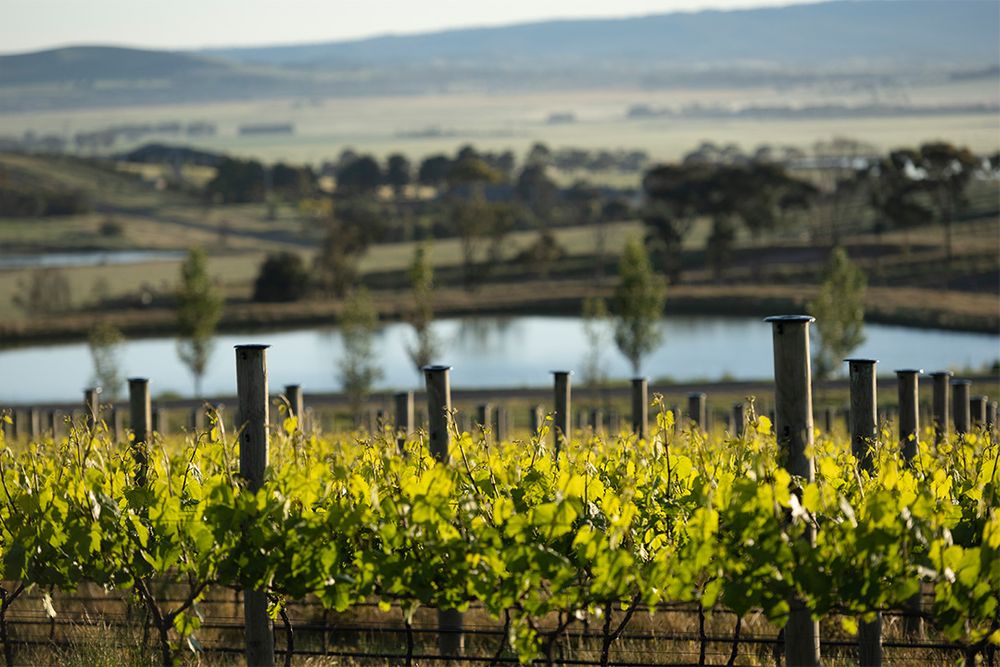
Although Heathcote feels like another country, it is only 60 miles from Melbourne. Separating Bendigo and Heathcote from the state capital are the two connecting wine regions, the Macedon Ranges and Sunbury.
Sunbury is a mixture of steep slopes and Melbourne suburb. A stone’s throw from Melbourne Airport is one of Australia’s finest wineries - Craiglee Estate, the domaine of the international Shiraz superstar Pat Carmody. When he first planted Shiraz in the 1970s it was totally out of fashion, and Craiglee’s fragrant floral peppery style was alien to the Australian collector and the show system judges.
Soon European wine commentators were whispering about a wine made just north of the city limits, that was a dead ringer for Grand Cru Northern Rhône Syrah. In his own way, his drive and unwavering focus has done as much for Australian Shiraz’s development as Max Schubert did with Penfolds Grange.
Macedon
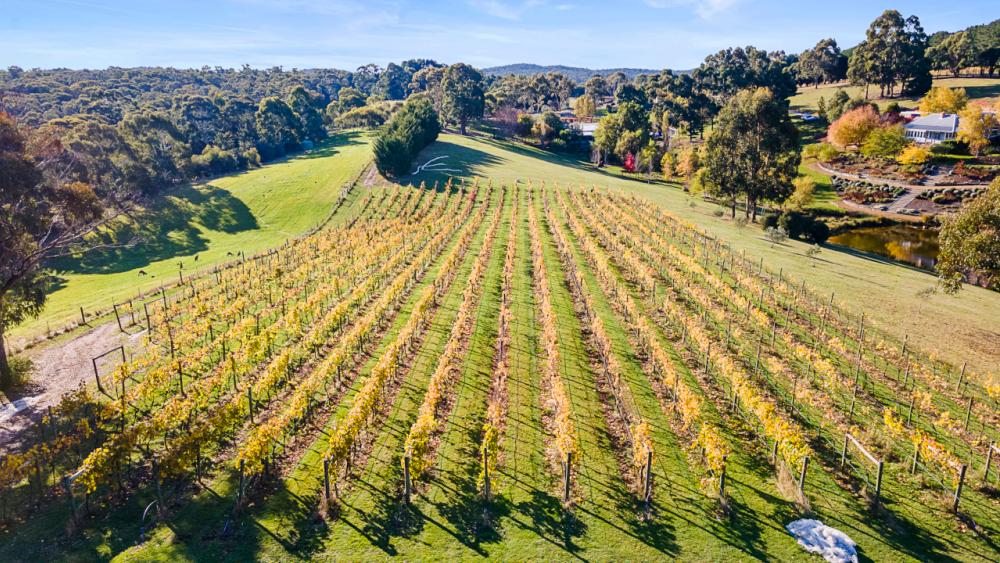
Macedon just to the north is beautiful, rocky and cold. Cold enough to make superb sparkling wines and is responsible for some the finest Sauvignon Blancs in the state, along with one or two stunning, marginal wine producers. Superstars include the beautiful Pinots and Chardonnays of Bindi, Shadowfax, Curly Flat and the spicy red and white wines of Hanging Rock Winery.
That is the wine story of Western Victoria. Next time we will look at the legendary fortified dessert wines and the current rebirth and reinvention of Victoria’s North East…
* You can find out more about the Victoria wine region at Wines of Victoria website here
* Parts 2 and 3 of Joe Wadsack's analysis of all the regions of Victoria will be published over the next two weeks.
